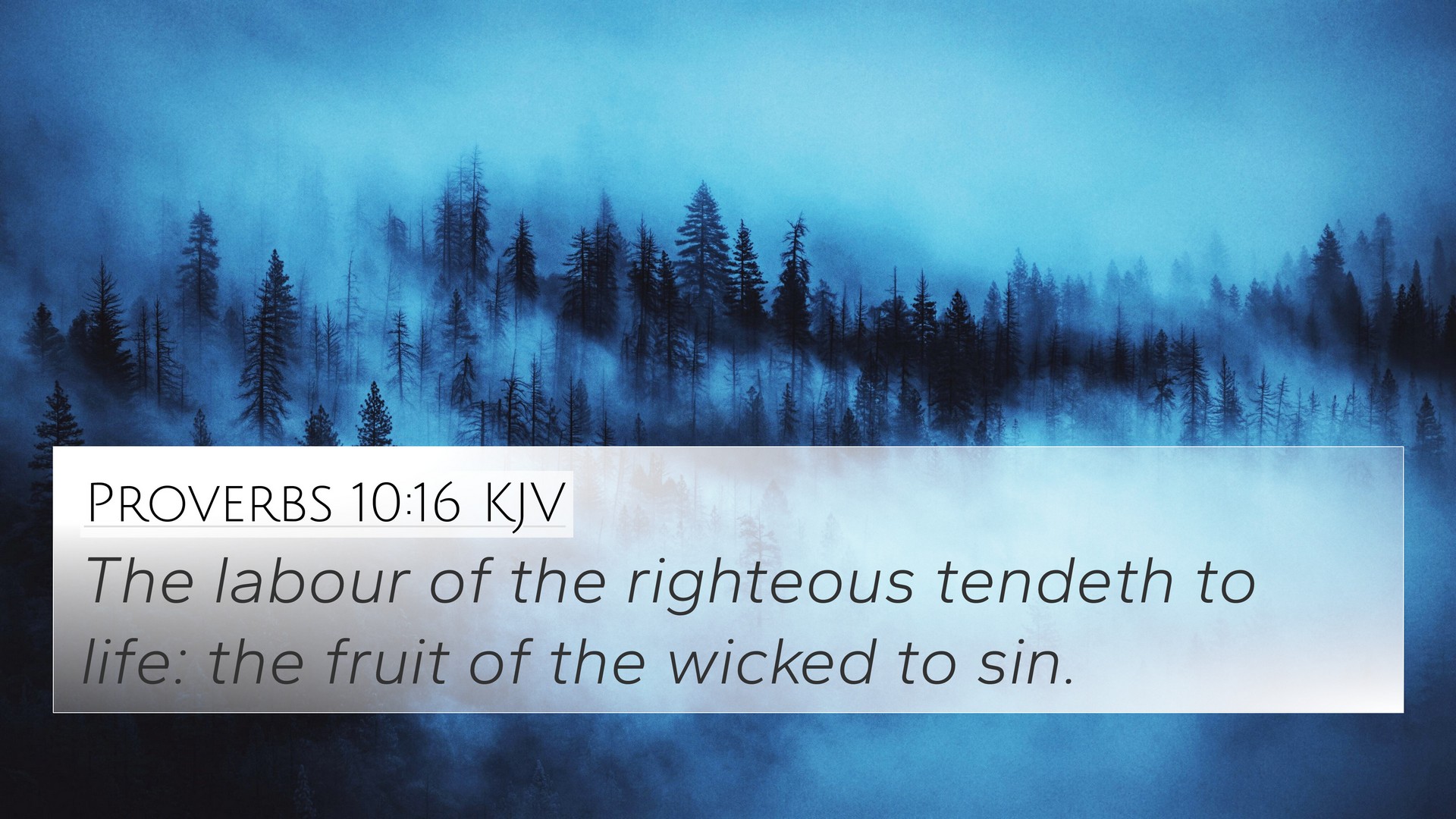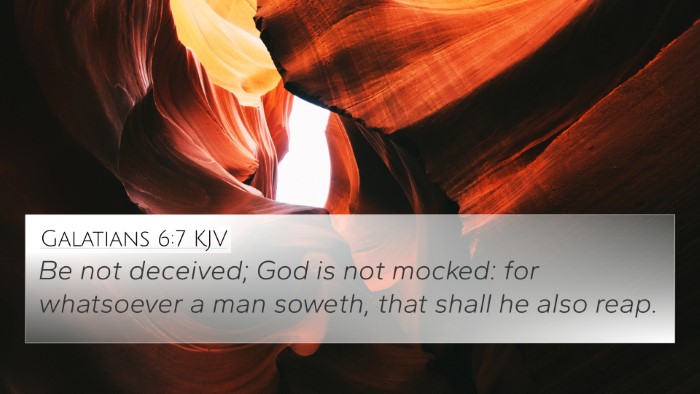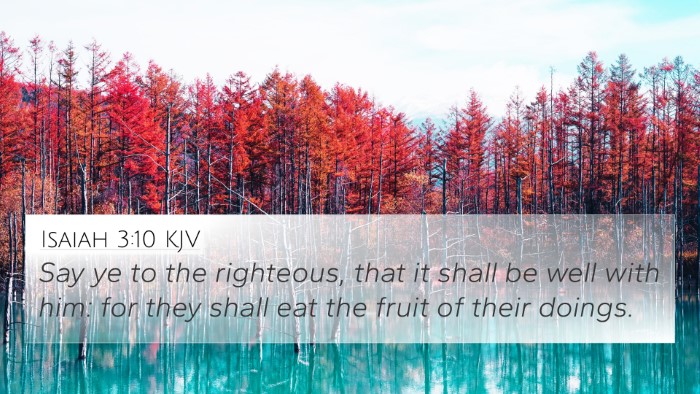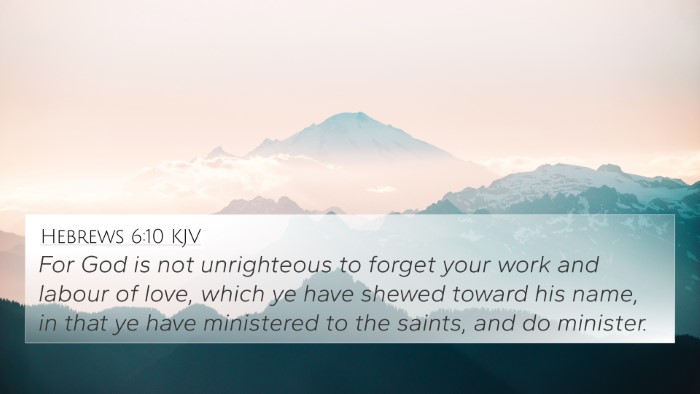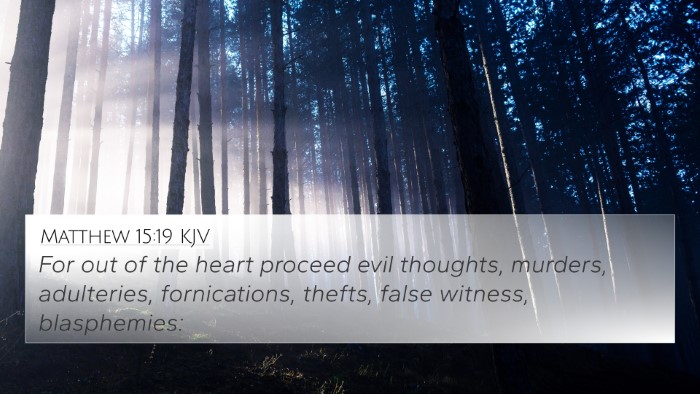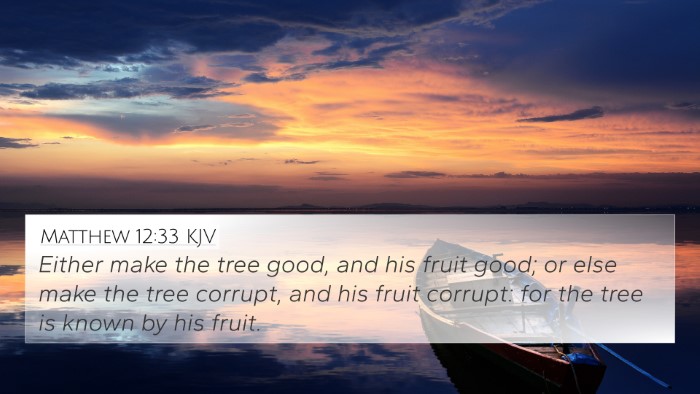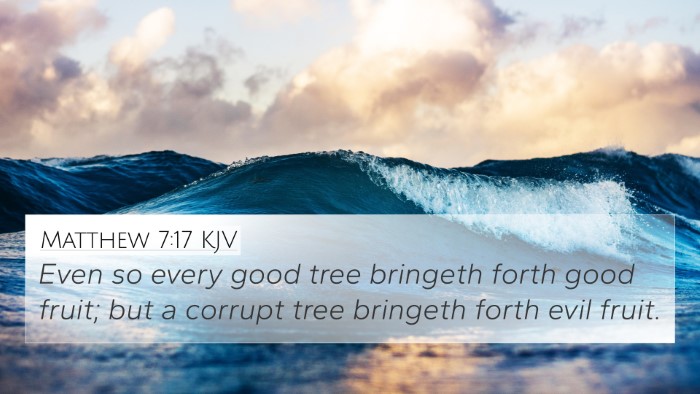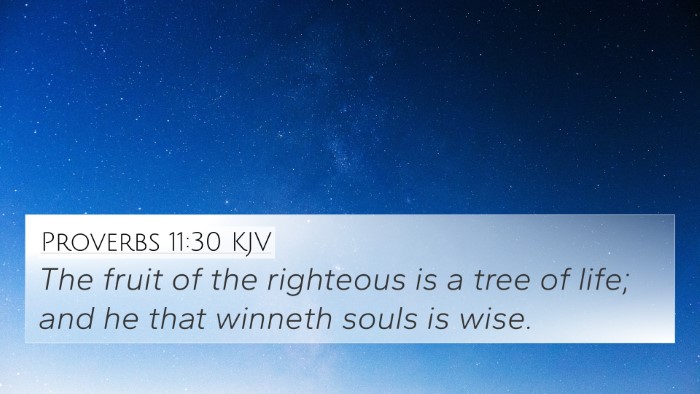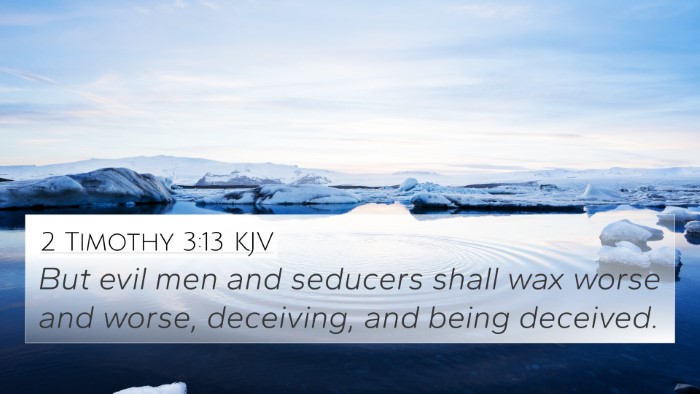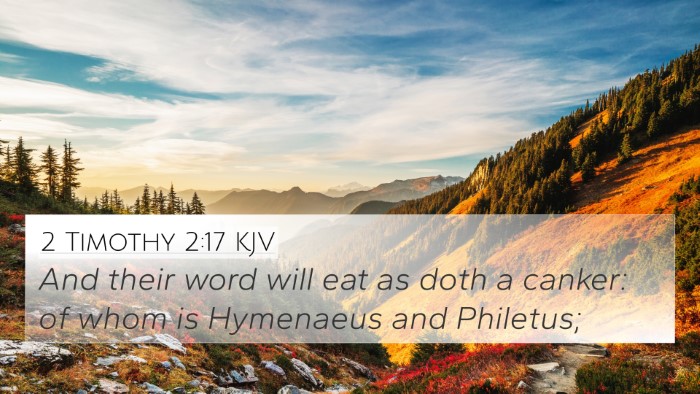Understanding Proverbs 10:16
Proverbs 10:16 states: "The labor of the righteous leads to life, The income of the wicked to sin." This verse encapsulates a central theme in biblical wisdom literature, contrasting the outcomes of righteous and wicked behavior. Its examination helps deepen our understanding of biblical ethics and the consequences of our actions.
Verse Meaning
This verse highlights two distinct paths that individuals can take in life—one of righteousness and one of wickedness. The imagery of labor and income symbolizes the results of one's life choices:
- Labor of the Righteous: Represents diligent work and moral living that align with God's will, promising positive outcomes such as life and fulfillment.
- Income of the Wicked: Illustrates the deceptive rewards that come from immoral actions, ultimately leading to spiritual death and sinfulness.
Insights from Commentaries
Matthew Henry's Commentary
Henry expounds on the labor aspect by noting that the righteous man finds joy and purpose in his work, which not only sustains his life but glorifies God. The verse reflects the principle that God blesses righteous endeavors, leading to spiritual abundance.
Albert Barnes' Notes
Barnes emphasizes the necessity of honest work, explaining that the term "life" in this context pertains not just to physical life but also to spiritual vitality. He contrasts this with the idea that the wicked, through their ill-gotten gains, are ultimately enslaved to sin, diminishing their spiritual state.
Adam Clarke's Commentary
Clarke elaborates on the thematic connection to the overall teachings of Proverbs, where the emphasis is placed on moral living. He notes that the results of one’s labor reflect their ethical disposition, reinforcing the motivation for a righteous lifestyle.
Biblical Cross-References
To further comprehend the implications of Proverbs 10:16, one can explore related scriptures that illuminate its themes:
- Proverbs 11:18: "The wicked man does deceptive work, but he who sows righteousness will have a sure reward."
- Romans 6:23: "For the wages of sin is death, but the gift of God is eternal life in Christ Jesus our Lord."
- Galatians 6:7-8: "Do not be deceived: God is not mocked, for whatever a man sows, that he will also reap..."
- Ecclesiastes 3:13: "also that everyone should eat and drink and enjoy the good of all his labor—it is the gift of God."
- Matthew 6:19-21: "Do not lay up for yourselves treasures on earth... for where your treasure is, there your heart will be also."
- Isaiah 57:21: "There is no peace, says my God, for the wicked."
- James 1:15: "Then, when desire has conceived, it gives birth to sin; and sin, when it is full-grown, brings forth death."
Thematic Connections
This verse also draws broader themes connecting various scriptures within both the Old and New Testaments:
- Righteousness vs. Wickedness: A recurring biblical narrative, highlighting God’s favor upon the righteous seen in Psalms and the New Testament teachings.
- Consequences of Actions: The principle of reaping what you sow ties into various teachings of Christ and the Apostles.
Exploring Cross-References
Tools for Bible Verse Cross-Referencing
To deeply engage with the connections between this verse and others, utilizing tools such as a Bible concordance or a Bible cross-reference guide can enhance your study.
For example, understanding how Proverbs 10:16 intersects with Romans 6:23 reveals the theme of life and death further explored in both Testaments, creating a rich tapestry of inter-Biblical dialogue.
Comparative Bible Verse Analysis
Engaging in comparative studies of verses like Galatians 6:7-8 and James 1:15 with Proverbs 10:16 allows for a robust analysis of biblical Texts and their implications on moral living.
Conclusion
In conclusion, Proverbs 10:16 stands as a poignant reminder of the consequences connected to our choices. The labor of the righteous, characterized by moral integrity and divine alignment, reaps the rewards of life, while the income of the wicked, rooted in sin, ultimately leads to destruction. Through cross-referencing biblical texts, we uncover a cohesive message that resonates through scripture, urging believers toward righteousness and away from sin.
